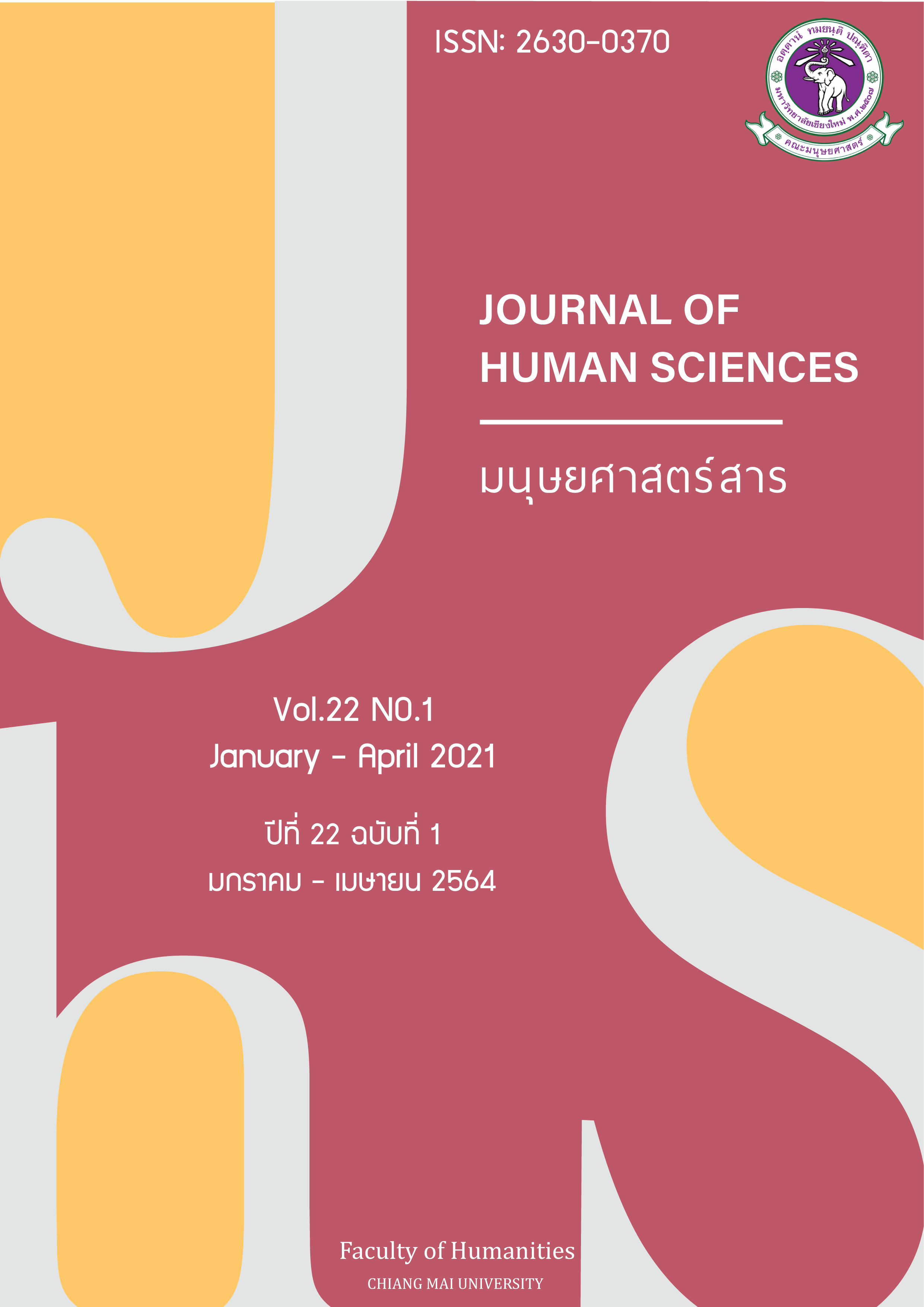การปรับเปลี่ยนสู่ดิจิทัลและผลกระทบต่อองค์กร
Main Article Content
บทคัดย่อ
ในขณะที่เทคโนโลยีดิจิทัลมีการพัฒนาและเปลี่ยนแปลงอย่างรวดเร็ว การบริหารจัดการองค์กรแบบเดิมไม่สามารถตอบสนองต่อรูปแบบการแข่งขัน พฤติกรรมของลูกค้า ผลิตภัณฑ์และบริการ รวมถึงวิธีการดำเนินงานขององค์กร ส่งผลให้องค์กรจำเป็นต้องปรับเปลี่ยนโครงสร้างพื้นฐาน โดยการนำเทคโนโลยีสมัยใหม่เข้ามาบูรณาการร่วมกับการดำเนินงานทั้งภายในและภายนอก ปัจจุบันองค์กรต่างๆ ในประเทศไทย ทั้งองค์กรเอกชน หน่วยงานราชการและรัฐวิสาหกิจ กำลังอยู่ในขั้นตอนการปรับเปลี่ยนสู่ดิจิทัลและได้รับความนิยมอย่างแพร่หลาย ผู้บริหารมีการกำหนดกลยุทธ์ดิจิทัลเพื่อเป็นแผนในการดำเนินงานธุรกิจ ซึ่งการปรับเปลี่ยนสู่ดิจิทัลจะช่วยขับเคลื่อนและผลักดันให้องค์กรสามารถปรับเปลี่ยนสู่ดิจิทัลได้สำเร็จ การปริทัศน์และสังเคราะห์วรรณกรรมฉบับนี้มีวัตถุประสงค์เพื่อให้สารสนเทศและความรู้ทั่วไปเกี่ยวกับการปรับเปลี่ยนสู่ดิจิทัลและผลกระทบต่อองค์กรแก่ผู้บริหารระดับสูง ให้สามารถนำไปใช้ในการตัดสินใจและเตรียมความพร้อมองค์กรในทุกภาคส่วน เพื่อให้การปรับเปลี่ยนดิจิทัลมีประสิทธิภาพและประสบความสำเร็จ ผู้เขียนสืบค้นวรรณกรรมและงานวิจัยที่เกี่ยวข้องจาก Online database และ Google Scholar โดยใช้คำสำคัญในการสืบค้น จัดแบ่งเอกสารออกเป็น 3 กลุ่ม ประกอบด้วย บทความวิจัย 7 เรื่อง บทความวิชาการ 7 เรื่อง และบทความปริทัศน์ 4 เรื่อง รวมทั้งสิ้น 18 เรื่อง โดยใช้กระบวนการวิเคราะห์เนื้อหา สรุปได้ว่าผลกระทบของการปรับเปลี่ยนสู่ดิจิทัลออกมาได้ทั้งหมด 6 ส่วน ประกอบด้วย 1) รูปแบบธุรกิจ 2) กระบวนการดำเนินงาน 3) ประสบการณ์ผู้บริโภค 4) บุคลากรในองค์กร 5) วัฒนธรรมองค์กร และ 6) โครงสร้างพื้นฐาน
Article Details
เอกสารอ้างอิง
AWARE. (2018). Machine Learning Kheu a Rai. Retrieved from http://bit.ly/2XQfQAF
Berman, S. J., & Marshall, A. (2014). The next digital transformation: from an individual-centered to an everyone-to-everyone economy. Strategy & Leadership, 42(5). 9-17.
Boskovic, A., Primorac, D., & Kozina, G. (2019). Digital organization and digital transformation.
In M. Cingula (President), 40th International Scientific Conference on Economic and Social Development – Buenos Aires 10-11 May 2019. Universidad de Buenos Aires, CABA.
Bouee, C. (2015). Digital transformation doesn’t have to leave employees behind. Harvard Business Review. Retrieved from https://hbr.org/2015/09/digital-transformation-doesnt-have-to-leave-employees-behind
Deloitte. (2018). Activating the digital enterprise: A sink-or-swim moment for today's enterprise. CT: Deloitte Development LLC.
Dyk, R. V., & Belle, J. V. (2019). Factors influencing the intended adoption of digital transformation: A South African case study. Proceedings of the Federated Conference on Computer Science and Information Systems, (pp.519-528). DOI: 10.15439/2019F166
Fedirko, D. (2019). 8 top trends of digital transformation in higher education. Retrieved from https://elearningindustry.com/digital-transformation-in-higher-education-8-top-trends
Fitzgerald, M., Kruschwitz, N., Bonnet, D., & Welch, M. (2013). Embracing digital technology: A new strategic imperative. MITS loan Management Review. 1-12. Retrieved from https://sloanreview.mit.edu/projects/embracing-digital-technology/
Forster-Metz & Golowko, N. (2017). Employability skills for the Romanian Outsourcing Industry. In The 11th international Conference on business excellence – Strategy, Complexity and energy in changing times, (pp.259-260). Bucharest, Romania.
Foerster-Metz. (2018). Digital transformation and its implications on organizational behavior. Journal of EU Research in Business. 1-14.
Gow, K., & McDonald, P. (2006). Attributes required of graduates for the future workplace. Journal of Vocational Education & Training, 52. 373–396.
Hartl, E. & Hess, T. (2019). The role of cultural values for digital transformation: insights from a Delphi Study. In Twenty-third Americas Conference on Information Systems, (pp.1-10). Boston, Massachusetts.
Hess, T. (2016). Options for formulating a digital transformation strategy. MIS Quarterly Executive, 15(2). 123-139.
Hildebrandt, B. (2015). Entering the digital era the impact of digital technology related M & As on business model innovations of automobile OEMs Chair of Information Management. In ICIS 2015 Proceedings, (pp.1-21). n.p.
Kane, G. C. (2015). Strategy, not technology, drives digital transformation. In MIT Sloan Management Review and Deloitte. London: Deloitte University.
Khon Kaen University, Faculty of Science. (2019). Cloud computing Kheu a Rai. Retrieved from http://sc2.kku.ac.th/office/sci-it/index.php/29-cloud-computing.html
Kohli, R., & Johnson, S. (2011). Digital transformation in latecomer industries: CIO and CEO Leadership Lessons from Encana Oil & Gas (USA) Inc. MIS Quarterly Executive, 10(4). 141-156.
Luna-Reyes, L. F., & Gil-Garcia, J. R. (2014). Digital government transformation and internet portals: The co-evolution of technology, organizations and Institutions. Government Information Quarterly, 31. 545-555.
Matt, C. (2015). Digital transformation strategies. Business information systems engineering, 5. 339-343.
Mocker, M., & Fonstad, N. O. (2017). Driving digitization at Audi. In ICIS 2017 Proceedings,
(pp.1-15). n.p.
Morakanyane, R., Grace, A. A., & O'Reilly, P. (2017). Conceptualizing digital transformation in business organizations: A systematic review of literature. In BLED Proceedings, (pp.426-444). n.p.
Nwankpa, J. K., & Roumani, Y. (2016). IT capability and digital transformation: A firm performance perspective. In ICIS 2016 Proceeding, (pp. 1-16). n.p.
Osmundsen, K., Iden, J., & Bendik B. (2018). Digital transformation: drivers, success, factors, and implications. In The 12th Mediterranean Conference on Information Systems (MCIS),
(pp. 1-15). Corfu.
Piccinini, E. (2015). Transforming industrial business: The impact of digital transformation on automotive organizations. In ICIS 2015 Proceeding, (pp. 1-20). n.p.
Reis, J. (2018). Digital transformation: A literature review and guidelines for future research. In World CIST'18 2018, AISC 745, (pp.411–421). Chicago.
Remane, G. (2016). Discovering new digital business model types: A study of technology startup. In AMCIS 2016 Proceedings, (pp. 1-10). San Diego.
Resnick, M. (2002). Rethinking learning in the digital age. MA: The Media Laboratory Massachusetts Institute of Technology.
Ross, B. (2015). Why 40 percent of businesses will die in the next 10 years. Retrieved from https://www.linkedin.com/pulse/why-40-percent-businesses-die-next-10-years-barryross/
Rouse, M. (2011). Digital enterprise. Retrieved from https://searchcio.techtarget.com/definition/ Digital-enterprise.
Schuchmann, D., & Seufert, S. (2015). Corporate learning in times of digital transformation: A conceptual framework and service portfolio for the learning function in banking organizations. iJAC, 8(1). 31-39.
Soule, D. (2016). Becoming a digital organization: The Journey to Digital Dexterity. MA: MIT Center for Digital Business and Capgemini Consulting.
SYMY. (2018). Top 8 digital transformation trends of 2019 you can’t afford to miss. Retrieved from https://www.zymr.com/top-8-digital-transformation-trends-of-2019-you-cant-afford-to-miss/
Tamm, T. (2015). How An australian retailer enabled business transformation through enterprise architecture. MIS Quarterly Executive, 14(4). 181-193.
Thorseng, A. A., & Grisot, M. (2017). Digitalization as institutional work: A case of designing a tool for changing diabetes care. Information Technology & People, 30(1). 227-243.
Volini, E., & Mazor, A.H. (2020). Activating the digital enterprise. Retrieved from
https://www2.deloitte.com/us/en/pages/human-capital/articles/the-digital-organization.html
Wang, Y., Kung, L. A., & Byrd. T. A. (2018). Big data analytics: Understanding its capabilities and potential benefits to healthcare organizations. Technology Forecasting and Social Change, 126. 3-13
Westerman, G., & Bonnet, D. (2015). Revamping your business through digital transformation. Retrieved from https://sloanreview.mit.edu/article/revamping-your-business-through-digital-transformation/


